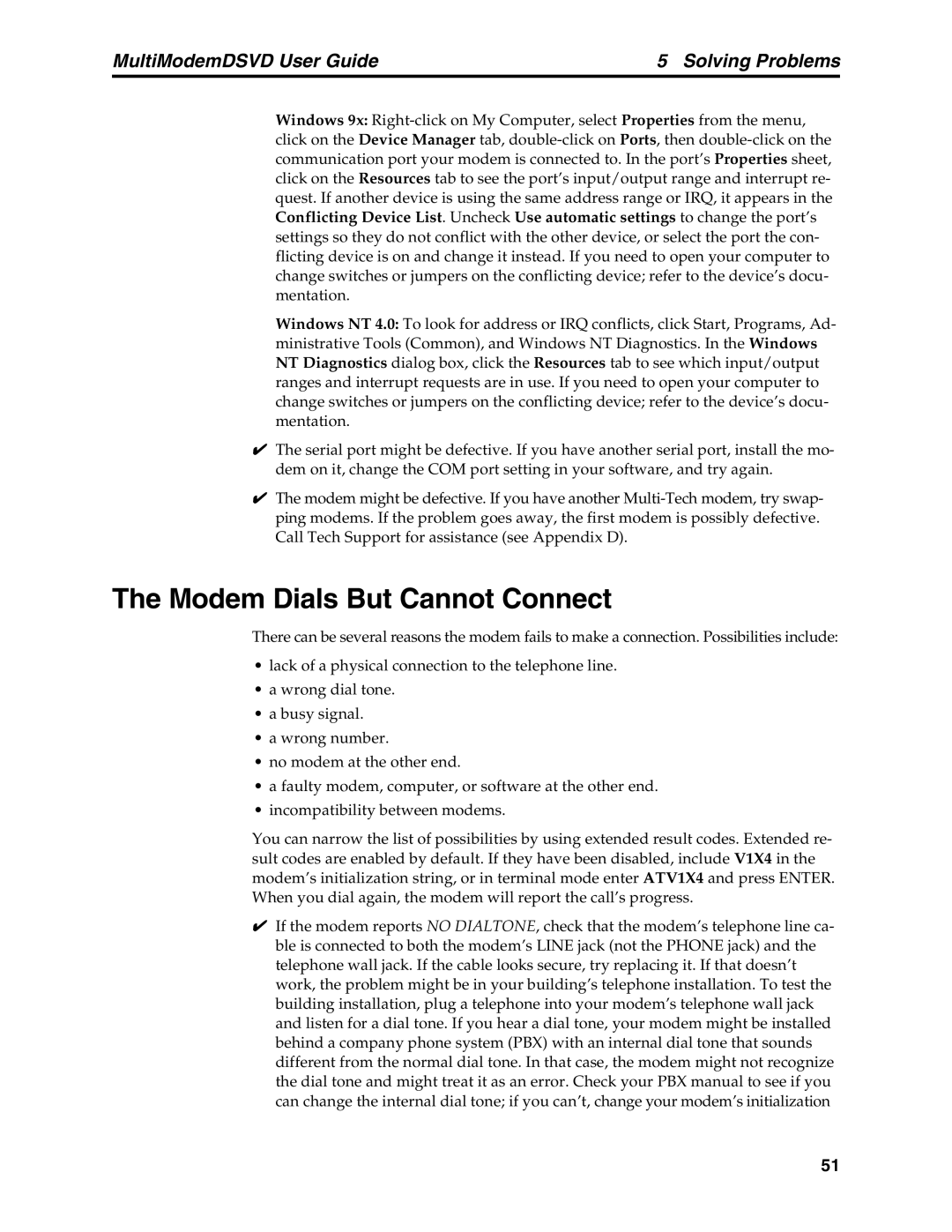MultiModemDSVD User Guide | 5 Solving Problems |
Windows 9x:
Windows NT 4.0: To look for address or IRQ conflicts, click Start, Programs, Ad- ministrative Tools (Common), and Windows NT Diagnostics. In the Windows NT Diagnostics dialog box, click the Resources tab to see which input/output ranges and interrupt requests are in use. If you need to open your computer to change switches or jumpers on the conflicting device; refer to the device’s docu- mentation.
The serial port might be defective. If you have another serial port, install the mo-
4dem on it, change the COM port setting in your software, and try again.
The modem might be defective. If you have another
The Modem Dials But Cannot Connect
There can be several reasons the modem fails to make a connection. Possibilities include:
•lack of a physical connection to the telephone line.
•a wrong dial tone.
•a busy signal.
•a wrong number.
•no modem at the other end.
•a faulty modem, computer, or software at the other end.
•incompatibility between modems.
You can narrow the list of possibilities by using extended result codes. Extended re- sult codes are enabled by default. If they have been disabled, include V1X4 in the modem’s initialization string, or in terminal mode enter ATV1X4 and press ENTER. When4you dial again, the modem will report the call’s progress.
If the modem reports NO DIALTONE, check that the modem’s telephone line ca- ble is connected to both the modem’s LINE jack (not the PHONE jack) and the telephone wall jack. If the cable looks secure, try replacing it. If that doesn’t work, the problem might be in your building’s telephone installation. To test the building installation, plug a telephone into your modem’s telephone wall jack and listen for a dial tone. If you hear a dial tone, your modem might be installed behind a company phone system (PBX) with an internal dial tone that sounds different from the normal dial tone. In that case, the modem might not recognize the dial tone and might treat it as an error. Check your PBX manual to see if you can change the internal dial tone; if you can’t, change your modem’s initialization
51
